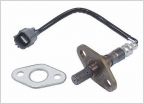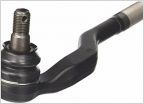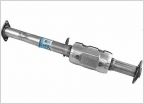-
Welcome to Tacoma World!
You are currently viewing as a guest! To get full-access, you need to register for a FREE account.
As a registered member, you’ll be able to:- Participate in all Tacoma discussion topics
- Communicate privately with other Tacoma owners from around the world
- Post your own photos in our Members Gallery
- Access all special features of the site
Compression test gone wrong
Discussion in '1st Gen. Tacomas (1995-2004)' started by Logans2001, Aug 9, 2022.
Page 2 of 2
Page 2 of 2


 2002 Tacoma V6 Code P1135 Pinout for the F/A Sensor?
2002 Tacoma V6 Code P1135 Pinout for the F/A Sensor? What else is needed with Dakar leaf pack?
What else is needed with Dakar leaf pack? 2004 Tacoma TRD front end part number check and your input
2004 Tacoma TRD front end part number check and your input P0420 error code 2001 Tacoma. I have some questions!
P0420 error code 2001 Tacoma. I have some questions! 3.4 spark plugs?
3.4 spark plugs?










































































